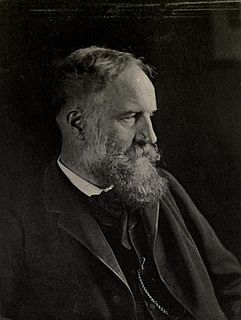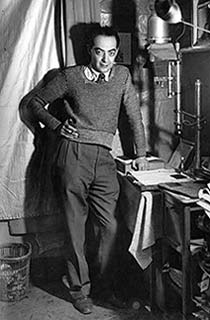Ein Zitat von Margarete von Valois
In uns steckt mehr der Schein von Sinn und Tugend als die Realität.
Themen zitieren
Verwandte Zitate
Meine Bilder waren einfach in dem Sinne surreal, dass meine Vision die fantastische Dimension der Realität hervorbrachte. Mein einziges Ziel war es, die Realität auszudrücken, denn es gibt nichts Surrealeres als die Realität selbst. Wenn die Realität uns nicht mit Staunen erfüllt, liegt das daran, dass wir uns angewöhnt haben, sie als etwas Alltägliches zu betrachten.
In einem tiefen metaphysischen Sinne ist alles Bedingte illusorisch. Alle Phänomene sind im wahrsten Sinne des Wortes „Erscheinungen“, die äußeren Masken, in denen sich die Eine Realität in unserem sich verändernden Universum zeigt. Je „materieller“ und solider die Erscheinung ist, desto weiter ist sie von der Realität entfernt und desto illusorischer ist sie.
Wenn gewöhnliche Gegenstände auf diese Weise mit der Andeutung von Schrecken aufgeladen werden, regen sie die Fantasie weitaus mehr an als Dinge von ungewöhnlichem Aussehen; und diese Büsche, die sich dicht um uns drängten, nahmen für mich in der Dunkelheit eine bizarre groteske Erscheinung an, die ihnen irgendwie das Aussehen zielstrebiger und lebender Kreaturen verlieh. Ich hatte das Gefühl, dass ihre Alltäglichkeit das Bösartige und Feindselige für uns verdeckte.
Für mich ist ein Leben ohne Literatur undenkbar. Ich denke, dass Don Quijote im physischen Sinne nie existiert hat, aber Don Quijote existiert mehr als jeder andere, der im Jahr 1605 existierte. Viel mehr. Es gibt niemanden, der mit Don Quijote oder Hamlet mithalten kann. Am Ende haben wir also die Realität des Buches als Realität der Welt und als Realität der Geschichte.
[Besonnenheit] ist die Tugend des Teils des Intellekts [des Berechnenden], zu dem sie gehört; Und . . . Unsere Wahl unserer Handlungen wird ohne Klugheit ebenso wenig richtig sein wie ohne moralische Tugend, denn während moralische Tugend es uns ermöglicht, das Ziel zu erreichen, zwingt uns Klugheit, die richtigen Mittel zum Ziel zu wählen.
Von der inneren Realität, womit ich die Gesamtheit der psychologischen Erfahrungen meine, trennt sie uns tatsächlich. Die Kunst beschäftigt sich beispielsweise mit viel mehr Aspekten dieser inneren Realität als die Wissenschaft, die sich bewusst und konventionell auf das Studium einer sehr begrenzten Klasse von Erfahrungen beschränkt, den Sinneserfahrungen.
Je länger ich lebe, desto mehr wird mir klar, welchen Einfluss die Einstellung auf das Leben hat. Für mich ist die Einstellung wichtiger als Fakten. Es ist wichtiger als die Vergangenheit, als Bildung, als Geld, als die Umstände, als Misserfolge, als Erfolge, als das, was andere Menschen denken, sagen oder tun. Es ist wichtiger als Aussehen, Begabung oder Können. Es wird über Erfolg oder Misserfolg eines Unternehmens entscheiden. . . eine Kirche . . . ein Zuhause.
Was man „gesunden Menschenverstand“ nennt, ist auf seinem Gebiet hervorragend und ebenso unschätzbar wie die Tugend der Konformität in der Armee und der Marine – denn es muss Unterordnung geben –, aber der außergewöhnliche Menschenverstand, der Sinn, der nur den Klügsten gemeinsam ist, ist es umso besser, je seltener es ist.






































